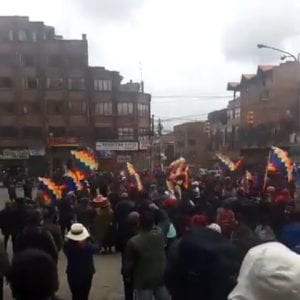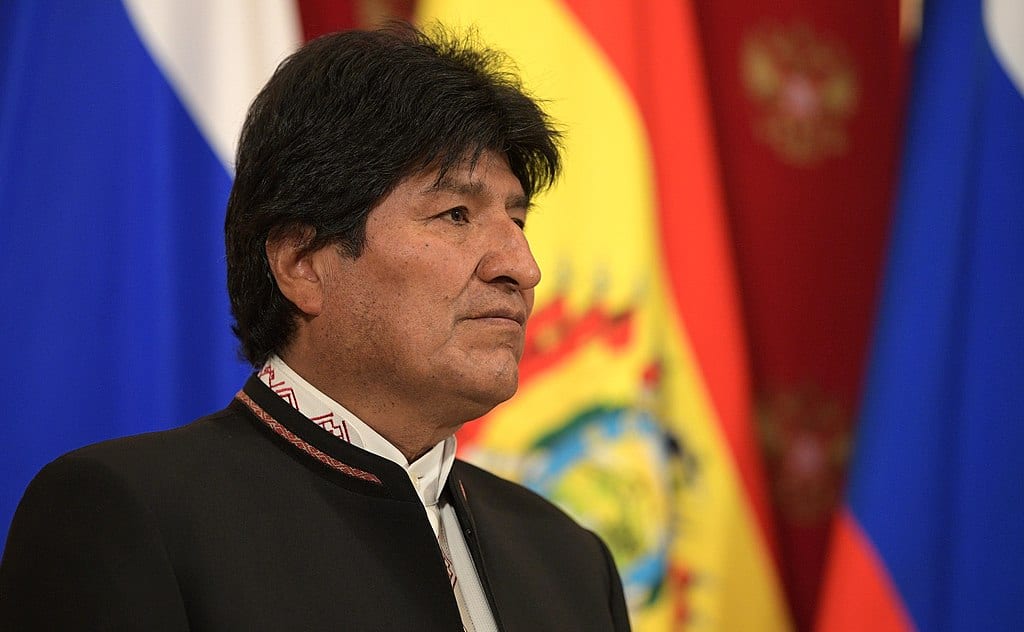The Bolivian coup resulted in the exile of Evo Morales and widespread violence towards the Indigenous community. Why? Religion. Money. Racism. Lithium.
The world is in turmoil. France’s Yellow Vest protests, born after a fuel tax hike, are a year old now and still going. Haiti’s 16-month long rebellion continues. Hong Kongers are resisting Beijing’s rule with everything they’ve got, because failure means disaster. Lebanon. Chile. Catalonia. Iraq. Everywhere, people are protesting corruption, high prices for crucial resources, low wages, and government repression. And then there’s the Bolivian coup, a show of power that should frighten anyone who values self-determination.
What happened? Bolivia’s elections were held on October 20th. The incumbent, Evo Morales, was Bolivia’s first Indigenous President. During his 13 years in power, Morales introduced a mixed social-capitalist economy that slashed poverty rates in his country, increased literacy and employment rates, reduced infant mortality and chronic malnutrition in children, and nearly tripled the number of rural homes with electricity, all while reducing inflation to 1.5%. Morales broke with Constitutional rule by standing for a fourth term, though, and while there was legitimate criticism that he should have stood aside to allow new leadership a chance, the other Presidential candidates had serious issues. Carlos Meza was a former Vice President during a violently repressive regime. Luis Fernando Camacho was the right-wing candidate favored by oligarchs and corporate interests, associated with drug cartels and a previous dictatorship. One can appreciate why Morales didn’t look like such a bad option.
When Morales emerged with 47.1% of the vote, far more than second-place Meza at 35.5%, however, the Washington D.C.-based diplomatic body Organization of American States stoked suspicions of election fraud (which have since been debunked). Morales offered to re-run the election, but Meza objected to Morales being able to run. That’s when the chief of Bolivia’s armed forces, Gen. Williams Kaliman, strongly suggested that Morales get out of town. Morales resigned and left for exile in Mexico City, claiming he did so to prevent other leaders in his party from being persecuted, while Deputy Senate Speaker Jeanine Áñez declared herself the interim President. (Áñez’s party received just over 4% of the vote in the recent election, finishing fourth.) These events, considered a fascist, right-wing coup by pro-Morales protesters and others worldwide, were hailed by President Trump as a victory for democracy.
There’s more to the Bolivian coup than meets the eye, though.

This is a move to disempower Indigenous people. Protecting Indigenous people and their rights worldwide is crucial to fighting ecosystem collapse and the climate crisis. After the Bolivian coup, though, anti-Morales protesters have burned the pan-Indigenous Wiphala flag and targeted Indigenous people for violence and death. Interim President Áñez comes from a white-dominated ranching area that has traditionally been hostile to Indigenous interests. She is also a Christian fundamentalist; in 2013 she tweeted, “I dream of a Bolivia free of Indigenous satanic rites, the city is not for ‘Indians,’ they better go to the highlands or El Chaco.” Last week, Luis Fernando Camacho held a Bible in one hand and the national flag in the other, praying over the Presidential seal to purge Bolivia of its Native heritage. “Pachamama will never return to the palace,” he said, referring to the popular Incan Earth Mother Goddess. “Bolivia belongs to Christ.”
Morales worked towards sovereignty for Indigenous people, nationalizing industries and using the wealth to promote the interests of his people rather than large corporations. The Bolivian coup was driven by religious and capitalist interests, agribusiness, the military and police, and backed by neo-colonial interests. Corporate capital spied a weakness in the governing MAS (Movimiento al Socialismo) party’s armor, and drove a wedge straight into it. Patricia Arce, the MAS-affiliated mayor of the small city of Vinto, was kidnapped from the town hall (before it was set on fire), marched across town barefoot while carrying a heavy metal pole, doused in red paint, and then masked anti-MAS protesters cut off her hair.
Finally, why all the fuss? What does Bolivia have that’s so valuable that they’re willing to humiliate politicians, overturn elections, pepper-spray journalists, and harshly repress pro-Morales protesters to get? Lithium. Bolivia has the largest lithium reserve in the world. While lithium has a wide range of industrial uses, it’s a crucial ingredient in the batteries that would help power a renewable energy-based economy. Could the Bolivian coup, like the Iraq war, have little or nothing to do with “spreading democracy” and everything to do with prying wealth out of Bolivian people’s hands to fill oligarchic, corporate pockets? If so, there’s a union forming between crunchy-granola Green New Deal advocates and head-cracking fascists to bring us electric cars and Tesla Powerwalls that are drenched with Indigenous blood.
Related: The Future Is Fascist, Unless We Act Now


Join the conversation!